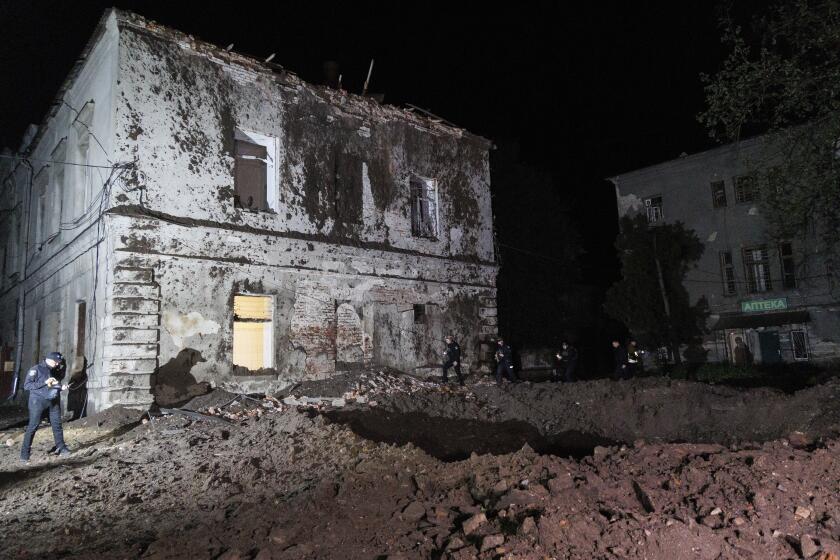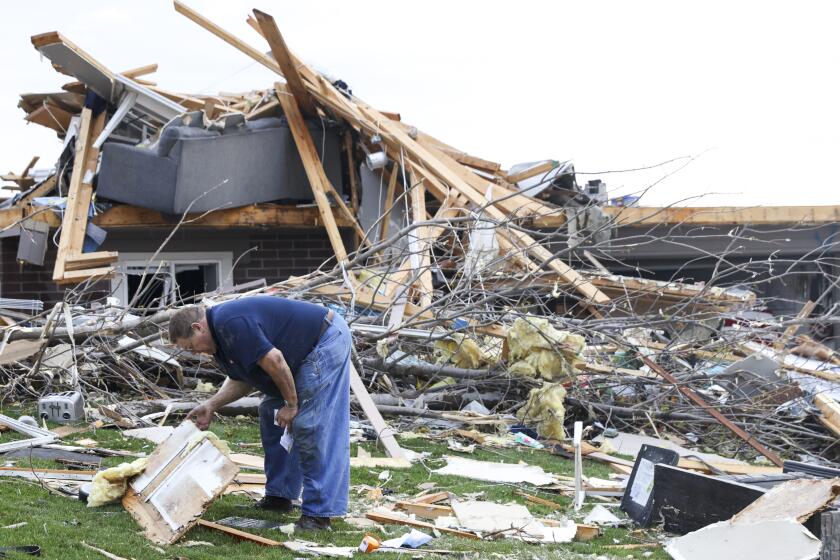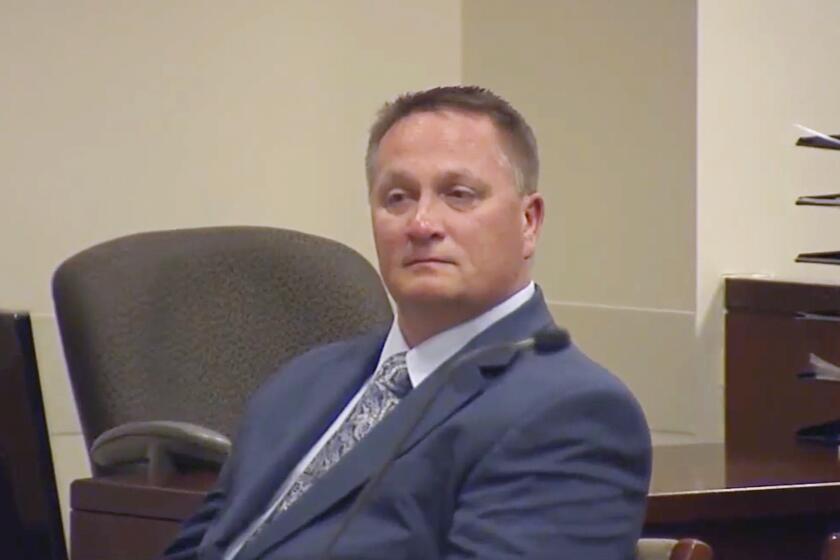Number of voting centers for Afghanistan presidential election will increase
Afghan election officials said Thursday that they would increase the number of voting centers for next week’s presidential runoff election, disregarding U.N. advice to open fewer sites to prevent the rampant fraud that characterized the first round of balloting.
The announcement deepened fears that the Nov. 7 poll would be as tainted as the August election. U.S. and allied officials had hoped that the showdown between President Hamid Karzai and former Foreign Minister Abdullah Abdullah would result in a government that can be a credible partner in efforts to stabilize the country.
The massive fraud that took place in the first round has discredited Karzai’s government and undermined U.S. public support for the war at a time when President Obama is weighing a Pentagon request to deploy thousands of additional troops.
United Nations-backed auditors threw out a third of the ballots cast for Karzai in August, denying him an outright victory and forcing him into a runoff against Abdullah, his main challenger.
U.N. and U.S. advisors said much of the fraud occurred at “ghost” voting centers, which never opened and yet returned results. And at the centers that did open, there was insufficient oversight, they said.
The decision to add more centers stunned international officials.
“The sheer arrogance of this is staggering,” said one Western official, who requested anonymity because of the sensitivity of the issue. “They disregarded all of the professional advice that has been given to them and clearly there is a political agenda behind this.”
The Independent Election Commission plans to open 6,322 voting centers next week, 17 more than on Aug. 20, said electoral official Zekria Barakzai.
United Nations advisors, however, put the number of centers that opened in the first round at 6,167. They had recommended reducing the number to 5,817, to ensure sufficient monitoring and security during the runoff.
“We’re consulting with the IEC on the decision to see how they arrived at that number of polling stations,” said Aleem Siddique, spokesman for the U.N. mission in Afghanistan.
Barakzai said security had improved in parts of Herat and Farah provinces in the far west and Helmand province in the south, where voting could not take place in August. He said Afghan and international forces had assured the commission that it was safe to open 6,600 voting centers and it chose to open about 300 fewer.
He said the commission had suspended seven provincial electoral officials suspected of fraud and that they would be referred for prosecution in court. The commission has also hired and trained 3,054 additional district officials, he said.
“We are trying to correct the mistakes that we did the first round,” Barakzai said.
The commission could cut the number of stations at which ballots are cast in each voting center, which would reduce the number of people required to monitor them. Barakzai said a decision had not been made yet on the number of polling stations.
Abdullah, who came in second behind Karzai in a crowded field in the August vote, has accused the election commission of bias and has demanded the removal of Chairman Azizullah Lodin and two deputies by Saturday. He also wants three government ministers suspended for allegedly assisting Karzai’s campaign. The president has refused to do either.
Barakzai said neither Karzai nor the commission had the authority to dismiss Lodin and his deputies, who can be removed only by the courts. But he said the commission had decided to grant Abdullah’s request that his campaign be allowed to send 20,000 observers to the polls.
Fazel Sangcharaki, a spokesman for Abdullah’s campaign, welcomed that decision but accused the election commission of trying to increase voter turnout for Karzai by opening polling centers in areas dominated by the president’s fellow Pashtuns.
“This is a tribal election,” Sangcharaki said.
Abdullah won’t say what he will do if the rest of his demands aren’t met, prompting speculation that he might pull out of the race. But some Western officials believe he is trying to strengthen his negotiating position and don’t rule out the possibility that the two candidates would reach a power-sharing arrangement.
Organizing a runoff posed serious logistical and security challenges.
Barakzai said there would be no voting next week in 11 districts in five provinces. Parts of Helmand, Wardak, Ghazni and Nuristan provinces are not safe enough to hold a vote, he said. And in Badakhshan province, some areas are already cut off by snow. Eight districts did not participate in the August vote.
Mounting violence is also a concern. The Taliban has vowed to disrupt the poll. Eight people, including five U.N. employees, were killed Wednesday when militants armed with suicide vests and grenades stormed a Kabul guesthouse packed with foreigners, including many election workers.
In the south, two troops were killed Wednesday in bombings, including an American, according to a statement from North Atlantic Treaty Organization-led forces.
--
More to Read
Start your day right
Sign up for Essential California for news, features and recommendations from the L.A. Times and beyond in your inbox six days a week.
You may occasionally receive promotional content from the Los Angeles Times.






